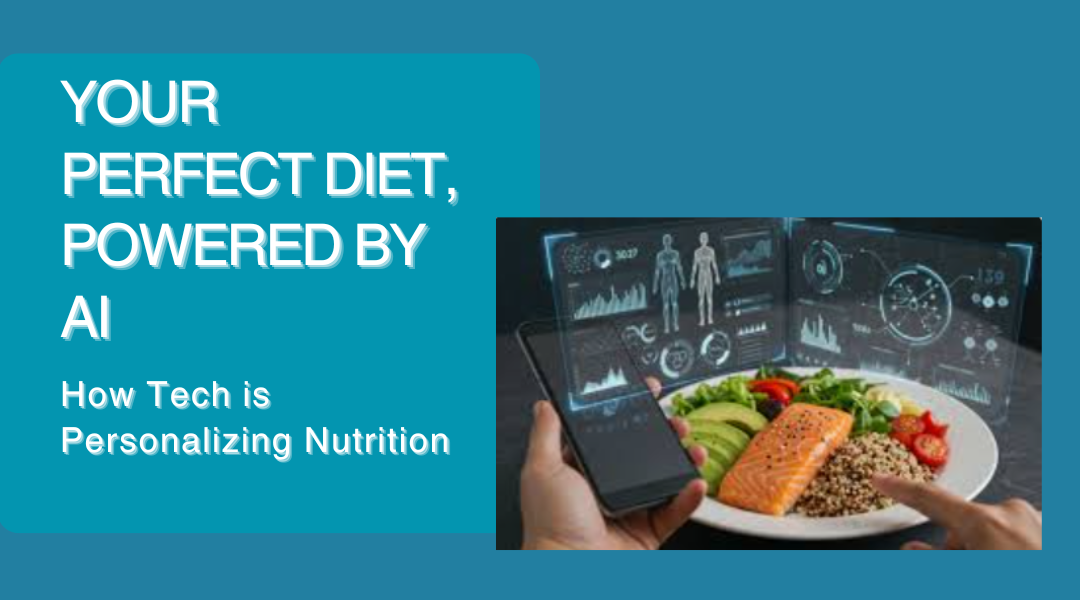We’ve all been there—staring at conflicting diet advice online, wondering if kale smoothies are really the answer or if that trendy keto diet will leave you feeling drained. The truth? There’s no universal “best” way to eat. Your ideal diet depends on your body, your lifestyle, even your DNA. Now, artificial intelligence is cutting through the noise, helping craft eating plans as unique as your fingerprint.
Goodbye, One-Size-Fits-All Nutrition
Government food pyramids and generic meal plans are so last century. Today’s AI-driven tools analyze everything from your fitness tracker data to your latest bloodwork, creating a diet that actually works for you.
Take Sarah, a marathon runner who kept hitting energy slumps. Her AI nutrition app noticed her iron intake was fine—but her genetic data revealed she absorbed it poorly. Instead of pushing more spinach, it suggested pairing iron-rich foods with vitamin C (like bell peppers with lentils) to boost absorption. Within weeks, her stamina improved.
Your Genes on a Plate
Ever wonder why your friend thrives on avocado toast while it leaves you bloated? AI-powered nutrigenomics can explain. By cross-referencing your DNA with nutrition research, these systems spot quirks like:
- A slow caffeine metabolizer? That third coffee might spike your anxiety.
- Lactose intolerance hiding behind “normal” digestion? Time to swap dairy for almond milk.
- High genetic risk for high cholesterol? A focus on soluble fiber (think oats, beans) could be lifesaving.
One startup even uses AI to match users with “genetic twins”—people with similar DNA profiles—to see what diets worked for them.
Gut Feelings, Decoded
That “trust your gut” saying takes on new meaning with microbiome testing. AI analyzes your gut bacteria balance, then suggests foods to feed the good bugs.
Example: Mark’s test showed low Bifidobacterium, linked to poor stress resilience. His AI coach added daily kimchi and asparagus (prebiotic powerhouses), and within months, his digestion—and mood—were smoother.
No More Boring Food Journals
Tracking meals used to mean tedious calorie counting. Now? Snap a pic of your breakfast burrito, and AI identifies ingredients and portions instantly. Some apps even listen as you rattle off what you ate (“Uh, chicken stir-fry with brown rice… and maybe too much soy sauce?”) and log it accurately.
The Anti-Diet Diet Coach
Most people know what to eat—sticking to it is the hard part. Enter AI coaches that use behavioral psychology:
- Texts you after a late-night snack: “Craving sweets after stress? Tomorrow, try dark chocolate + almonds—satisfying but blood-sugar friendly.”
- Spots patterns: *”You skip lunch every Tuesday before meetings. Prep these 5-minute wraps to avoid 3pm crashes.”*
- Connects you with a private group of users with similar goals (think: busy moms doing meal prep, not influencers pushing detox tea).
Meal Planning Without the Headache
AI meal generators are like having a dietitian, chef, and grocery shopper in your pocket. Tell it:
- *”I hate mushrooms, need 30g protein per meal, and have $75/week to spend.”*
- “Cook time under 20 minutes—I’m exhausted by 6pm.”
- “Kid-friendly versions, but sneak in extra veggies.”
Out pops a customized plan with recipes and an aisle-by-aisle shopping list.
The Fine Print on Food Labels
That “heart-healthy” cereal? AI scans the label in seconds: *”Contains 12g added sugar per serving—that’s half your daily limit. Here’s a lower-sugar alternative.”* It can even flag sneaky ingredients, like “evaporated cane juice” (aka sugar) in “organic” snacks.
Bigger Than Your Plate
This tech isn’t just for individuals. Hospitals use AI to design therapeutic diets for diabetic patients. Food banks optimize donations based on local nutrient gaps (like vitamin D-deficient communities getting fortified milk). Even farms employ AI to grow nutrient-dense crops based on soil data.
The Catch?
It’s not perfect yet. Privacy is a concern—you don’t want your microbiome data sold to advertisers. Bias exists too; if most genetic research is on white males, recommendations might miss cultural foods or gender differences. And let’s be real: No app replaces the joy of a family recipe passed down for generations.
The Future of Eating
Imagine this: Your fridge camera notices you’re low on veggies, so your phone pings with a 10-minute recipe using what’s left in your pantry. Your smartwatch detects rising stress hormones and suggests a magnesium-rich snack to calm your nerves. It’s not sci-fi—it’s happening now.
AI won’t make food impersonal. It’s helping us rediscover the lost art of eating right—for our bodies, our lives, and our long-term health. Because when it comes to nutrition, we deserve more than guesswork.
